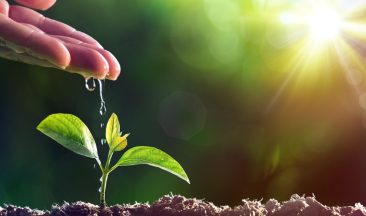The Urgent Need for Agritech Innovation
The 2020s are emerging as a pivotal decade for the agri-food industry. A confluence of challenging events has punctured post-war complacency about food security in the developed world. Recent events have created new enthusiasm for innovative agritech startups and created a massive market for disruptive food tech products and technologies.
This is an exciting time for innovators in the agriculture and technology industries to make meaningful strides towards technologies that make a real difference for people and the world we live in.
Population Growth
In November 2022, the global population reached the 8 billion mark for the first time in human history. And it’s not stopping at 8 billion; the global population is expected to reach 9.7 billion in 2050.
The challenge of feeding a growing population is immense, especially given a changing climate and reduction in arable land. The UN has made Zero Hunger its 2nd Sustainable Development Goal because of the weight of this challenge. It’s also an opportunity for Agtech to improve agriculture’s productivity and sustainability. The world’s brightest minds and most innovative technologies can alleviate food scarcity amidst these challenges.
Climate Change
Climate change is already impacting people and agriculture around the globe, bringing the word “resilience” to mind. This summer, Europe experienced its worst drought in 500 years, stressing water levels and cutting crop yields. North America has now experienced two years of severe to exceptional drought, stoking worry across major crop-producing areas. Climate change is driving an urgent requirement for improved technologies and greater adaptability.
Conflict in Ukraine
The ongoing conflict is causing widespread disruption to Ukrainian agriculture. Impacts reach beyond Ukraine’s borders, as the country is noted as a major breadbasket for the world.
Vital exports of staple grain and cereal crops are expected to be lower in 2023. Countries that depend on Ukrainian exports face shortages as wheat prices skyrocket and the number of people who may not get enough to eat jumps to 1.6 billion. As this geopolitical conflict continues, it’s not just political innovation that can lead the way to increase food security – Agtech innovation can help bridge the production gap.
Fertilizer Shortage
The commodities/energy crisis doubled the price of potash and tripled the price of urea, which are both key ingredients in manufactured fertilizers. High energy prices are also increasing production costs. For farmers, rising input costs are unbalancing the balance sheet and in some cases, threatening yields. The increasing cost of fertilizer will be passed along to consumers in the form of higher food prices.
Judicious use of fertilizer plays a key role in reducing the need for deforestation and loss of critical biodiversity. Fertilizers are critical for increasing yields on existing farmland. The development of sustainable next-generation fertilizers is an urgent priority.
Next-generation fertilizers will encompass increased nutrient use efficiency, biostimulants, and nitrogen fixation to provide necessary nutrients. Ultimately, this will lead the way for agricultural crops to be stronger and healthier, producing more per acre of arable land, with a low environmental footprint. Next-generation fertilizers will be key for limiting or eliminating food scarcity, even as the global population grows.
The COVID-19 lockdowns and early months of the Ukraine conflict exposed weaknesses in supply chains and logistics. Now the issue is the availability of vital foodstuffs rather than their effective distribution. The combined events of the last few years resulted in all-time price highs in 2021.
Food security is impacting every consumer on the planet. It’s also becoming a political issue. Companies that can deliver affordable and sustainable food tech innovations will attract major attention from investors over the next decade and beyond.
ICL is transforming the AgriFood Tech startup ecosystem with its innovative Planet Startup Hub. The Hub functions as an agrifood tech accelerator and an incubator, connecting new businesses to ICL resources and expertise.
We’ll explore how the ICL Planet Startup Hub can kickstart new Agritech and food tech ventures with practical assistance and funding, and improve the success and survivability rate of new businesses.
The ICL Planet Startup Hub Mission
ICL is built on innovation. Even though it’s an established group with a global presence, there is an underlying startup energy that constantly drives new ventures and enterprises around the world. This is truly the best of both worlds, underscored by growth orientation. ICL has massive experience when it comes to turning new concepts into thriving businesses and new ideas into marketable products.
The ICL Planet Startup Hub is a special unit within the ICL group. It has wide-ranging latitude to invest and form strategic partnerships with innovators and entrepreneurs in the fields of agrifood and agritech. The Hub is staffed by people with a passion for making things happen – the kind of people to encourage growth and innovation. They’re armed with full access to the ICL group’s technologies, expertise, logistics, and resources.
The ICL Planet Startup Hub mission is to connect with people who want to disrupt the Agtech and food tech sectors and make a rapid global impact. If you share our vision of sustainable innovation, a partnership with ICL will supercharge your development.
When you join the Hub, you won’t just be working with ICL, you’ll be part of a professional network of agritech and food-tech innovators and experts that extends around the globe.
Our agrifood tech accelerator and agrifood tech incubator are setting the standard by identifying and enabling a new generation of food tech and agritech startups.
Recent ICL Planet Startup Hub Initiatives
The Planet Startup Hub is rapidly expanding. 2022 was a seriously exciting year! Our Hub experts are collaborating with some of the finest innovators in the Agtech and food tech sectors and launching a number of game-changing projects. Let’s explore some of 2022’s invigorating initiatives.
Plant-Based Proteins
ICL is working in a strategic partnership with Plantible Foods, a B2B food technology company. Plantible Foods is a vertically integrated agricultural platform producing a functional protein derived from the plant genus Lemna. There is a huge public appetite for ‘superfoods’ as well as public demand for sustainable farming practices. Lemna could address both of these public interest areas
Lemna is high in protein and is fast-growing with a high natural crop density. As a water-based plant – actually a form of duckweed – Lemna production is suited to controlled environments. Industrialized production in factory units, utilizing circular economies and short supply chains, and supported by sustainable fertilizer solutions, is entirely achievable.
ICL and Protera Biosciences: AI-Driven Plant-Based Solutions
ICL Planet Hub’s first investment was $1M in Protera, an AI-driven start-up designing and developing new proteins, to enable a wide range of plant-based and sustainable solutions.
Protera Biosciences has joined with ICL to develop sustainable protein-based ingredients. The new food products will be created using precision fermentation and are intended to be commercially viable.
The project will also enable new research into untapped plant-based proteins. The goal is to become a market leader as the food industry experiences a more significant transition away from its current dependence on animal-derived proteins.
Protera Biosciences uses a revolutionary proprietary deep-learning algorithm called madi™ as part of its research processes. The super-fast algorithm is able to accurately predict effective high-value protein products and enzymes, slashing research times. Protera is superbly placed, at the cusp of a growth industry, to make a genuine contribution to sustainable food security.
ICL Invests in Sustainable Protein Ingredients Startup Arkeon
ICL Planet Startup Hub, has invested €2.75 million in Arkeon GmbH. The investment will support Arkeon’s innovative and sustainable one-step fermentation bioprocess, which creates completely customizable protein ingredients by capturing the greenhouse gas carbon dioxide (CO2) and converting it into the 20 proteinogenic amino acids necessary for human nutrition. The resulting alternative proteins are carbon-negative and clean-label functional ingredients.
Arkeon is a biotechnology company that pioneered an applied fermentation process that captures the greenhouse gas carbon dioxide (CO2) and converts it into protein. The start-up unearthed an ancient and highly resilient single-celled microorganism known as Archaea that naturally feeds on CO2. It transforms this detrimental emission into nutritious protein ingredients, including the full spectrum of 20 amino acids necessary for human nutrition.
As the newest portfolio member of ICL’s Planet Startup Hub, Arkeon will have full access to the ICL Food Specialties BU labs, state-of-the-art R&D labs, and production facilities.
ICL and Lavie Bio’s Strategic Collaboration to Develop Novel BioStimulant Products
Lavie Bio Ltd. is a subsidiary of Evogene, a leading computational biology company. Lavie Bio is now in a strategic long-term partnership with ICL. As part of the deal, ICL will channel, via ICL Planet, a $10 million dollar investment into the development of novel bio-stimulant products to enrich fertilizer efficiency. The ICL group is already a major producer of sustainable fertilizers and has extensive expertise in optimizing fertilizer performance.
Lavie Bio shares ICL’s vision of a world fed by sustainable agriculture. Its research and development program is driven in part by a proprietary computational predictive platform. The technology uses big data and advanced informatics to enable the development of viable bio-stimulant and bio-pesticide products. The goal is to improve food quality and crop yields within a sustainable, agtech economy.
Partnership with StartLife
StartLife is a natural partner for the ICL Hub. It’s Europe’s top agrifood tech startup accelerator and was co-founded by Wageningen University & Research. Like the ICL Planet Startup Hub, StartLife works with founders to build and develop startups with access to breakthrough technological innovations. The underlying criteria is that partners are contributing to the development of a sustainable global agricultural and food production system.
StartLife offers a range of practical assistance to new enterprises, including business development support, high-level mentorship, funding, and global networking. Since 2010, StartLife has assisted over 400 startups and raised over €320 million in follow-on capital. The new strategic partnership connects more EU-based startups with ICL, providing access to funding opportunities and the group’s huge resources and expertise.
ICL Planet Startup Hub Reaches New Frontiers in Brazil
New efforts to make a meaningful difference in the Brazilian startup ecosystem are taking place as the ICL Planet Startup Hub launches in collaboration with AgTech Garage.
Innovators have an opportunity to engage in addressing global food and agriculture production challenges through a new generation of plant nutrition and food tech solutions.
The Brazilian market has significant untapped potential for Agtech innovation. It’s growing rapidly, at 8-10% CAGR, and requires a dedicated focus on supporting innovative offerings to lead change. AgTech Garage will be a key partner in identifying startups that are a good fit for ICL, and then supporting them as they scale up.
Global Impact Challenge – SVG Ventures|THRIVE & ICL
Silicon Valley’s SVG Ventures|THRIVE is another leading global Agrifood investment and innovation platform. ICL Planet Startup Hub has joined them to launch the Global Impact Challenge, a worldwide search for the most innovative startups that are advancing a net-zero future for agriculture. The Global Impact Challenge focuses on three core goals within the net-zero context:
- Soil health and biodiversity
- Increasing food security
- Reducing and offsetting GHG emissions
Partnership with SVG Ventures|THRIVE brings a huge additional community of over 6,000 startups, as well as researchers, innovators, and academics from across the entire spectrum of agriculture and agritech into ICL’s orbit.
More on the subject:
BIG: ICL’s Revolutionary Approach to Internal Innovation Accelerators
ICL’s RD&I IMPACT Strategy: Channeling Sustainable Innovation to Create a
Positive Impact
Innovation Starts from Within
How the ICL Planet Startup Hub Supercharges Startups
A partnership with ICL, through our Planet Startup Hub, welcomes both early-stage agrifood startups and later-stage startups. Whatever your current status, we have the resources and expertise to supercharge your business and help you reach your full potential.
Agrifood Tech Incubator
If you need an Agrifood tech incubator for your new startup, The ICL Hub incubator elements will help you to build a strong foundation for future success. Funding opportunities for early-stage startups are generous.
- Pilot Runway Track – Up to $350K.
Additional startup nurturing includes access to shared workspaces, laboratories, and analytical resources. We also provide expert executive mentorship to support development. Startups benefit from assistance with corporate infrastructure and R&D through pilots, beta sites, and field trials. Our experts will be available for advice and practical assistance as you make the transition from the pilot track to the market highway.
Agrifood Tech Accelerator
Whether you were with us from the early days, or join us as a market-ready startup, the Hub’s agrifood tech accelerator tools will help you to achieve rapid (and hopefully glitch-free) commercialization in the global market. As well as a wealth of effective practical assistance and support, we can offer exciting investment opportunities.
- Highway Market Track – Up to $1M
- Planet Invest Growth Package – more than $1M
A strategic partnership with the ICL Planet Startup Hub connects you to funding opportunities, a huge professional network, and all the resources, global reach, and expertise of the ICL Group. We want your startup to succeed and to contribute to achieving sustainable global food security – and to the successful implementation of the 2nd UN SDG: Zero Hunger.
It’s extremely rewarding to know that we’re enabling startups that will make a real difference in advancing sustainable agriculture and food security. At ICL, we are determined to bring about a paradigm shift towards a more sustainable and secure future for generations to come.
We welcome strategic partnerships with anybody who shares our goals and our vision for a super-high-tech global farming and food production sector that operates in harmony with the environment and for the benefit of all the world’s people.







